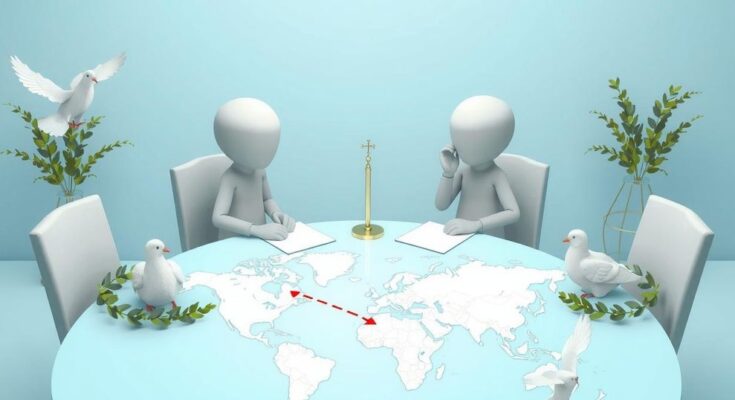South Korea and Ukraine’s top diplomats discussed the repatriation of North Korean POWs and emphasized their status as South Korean citizens. The talks also highlighted cooperation for peace and reconstruction in Ukraine in light of the ongoing conflict with Russia.
On Monday, top diplomats from South Korea and Ukraine engaged in a phone discussion centered around the repatriation of North Korean prisoners of war. The South Korean Foreign Minister, Cho Tae-yul, deliberated with his Ukrainian counterpart, Andrii Sybiha, concerning the two North Korean soldiers captured during conflict in Ukraine, as communicated by Seoul’s foreign ministry.
Minister Cho clarified to Sybiha that these captured North Korean soldiers are recognized as South Korean citizens under the South Korean Constitution. Furthermore, he indicated that their defection would be accepted should they express such a desire. The soldiers were apprehended in January while fighting against Ukrainian forces in the Kursk region of Russia.
Notably, North Korea had deployed approximately 11,000 troops to Russia in October of the previous year, with additional forces being sent between January and February this year to support Russia’s military efforts in Ukraine. In addition, Cho emphasized the South Korean government’s commitment to collaborate with the international community to facilitate the restoration of peace and the post-war reconstruction of Ukraine.
Sybiha detailed ongoing high-level discussions between Ukraine and the United States concerning strategies to resolve the conflict with Russia. He also conveyed expectations for sustained collaboration with global partners in fostering peace.
In summary, the dialogue between South Korea and Ukraine highlighted the complex issue of North Korean prisoners of war, emphasizing their status as South Korean citizens. The discussion also reflected broader commitments to international cooperation for peace and reconstruction in Ukraine. Both nations underscored the importance of collaboration with the global community to address ongoing challenges in the region.
Original Source: www.koreatimes.co.kr




